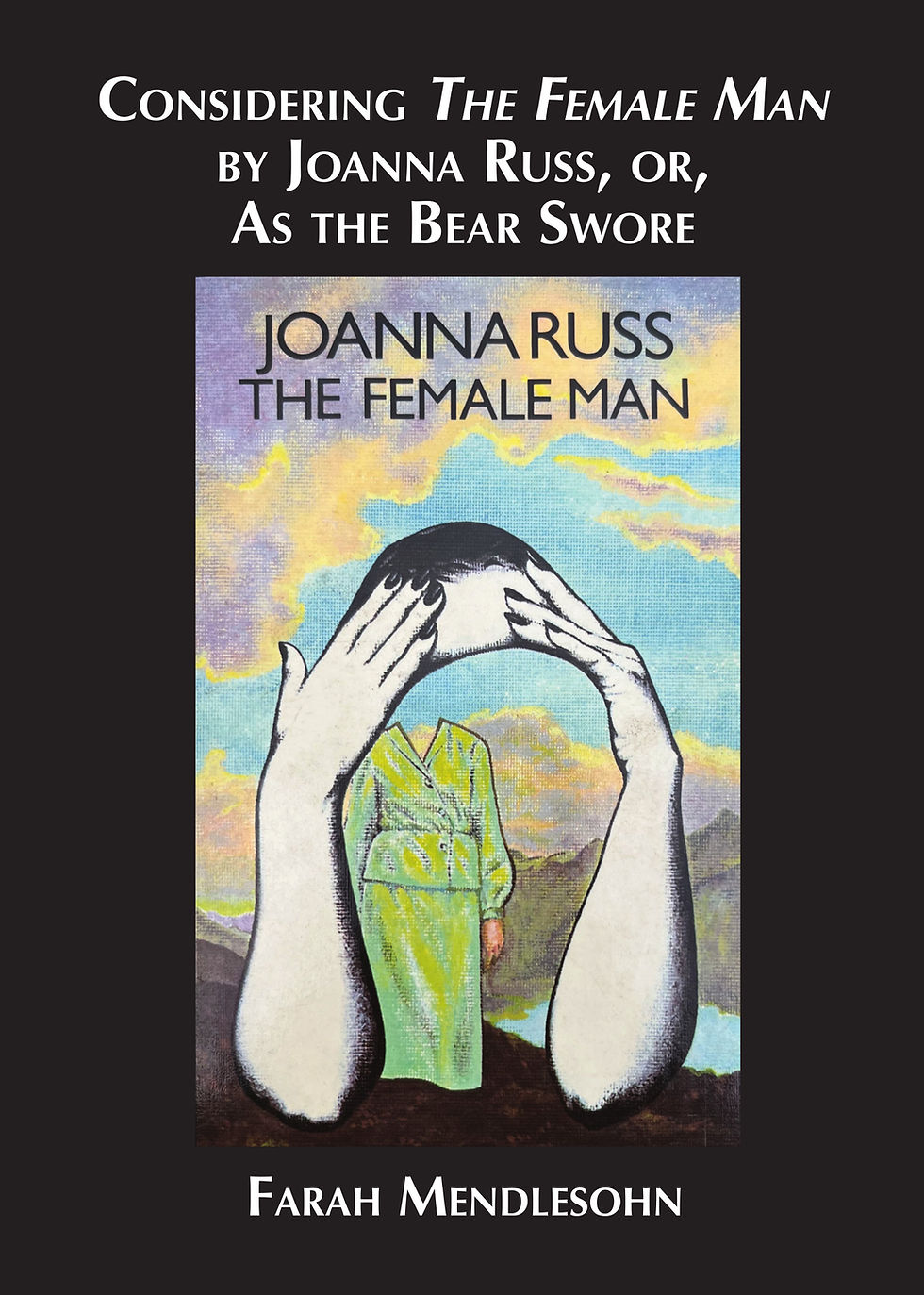C4P: AJ Dalton-The Decline of the Bromance and the Rise of Human-A.I. relationships in SF
- Jun 13, 2020
- 3 min read

Luna's fourth Call for Papers, Ties That Bind: Love in Fantasy and Science Fiction will be released on Saturday the 1st of August. Here is a chance to discover the 11 brilliant papers you will find in the book.
Today, we would like to introduce you to AJ Dalton (UK) PhD Creative Writing. Fantasy author with Gollancz
Presenting the paper: “The Decline of the Bromance and the Rise of Human-A.I. relationships in Science Fiction TV and film”
Adam says:
I'm getting old. I've been watching SF on TV and film for a whole lifetime. As a kid, once my younger sister had fallen asleep, I used to sneak downstairs to watch Star Trek (the original series) on BBC1 at 7pm. The adventures of Kirk, Spock and McCoy were simply the best thing! Come the modern era, though, such a patriarchal bromance (let alone 'bromance-triangle') is hard to find. Both TV and film are more clearly representative of different groups and lifestyles now. Things are somehow more alienated too, and far less optimistic than the days of Star Trek (the original series). Now, we have A.I.-based relationships in TV and film, and failures to establish fully-functioning interpersonal or successful socio-political relationships for the future (e.g. Blade Runner 2049). Perhaps it's our impending eco-doom that's colouring everything so badly, perhaps it's our 'broken' politics, I don't know. And yet the younger generation of today is (re-)discovering the original Star Trek series, and Kirk, Spock and McCoy are born again and as popular as they ever were. What gives? I decided to research the area further, and write my piece “The Decline of the Bromance and the Rise of Human-A.I. relationships in Science Fiction TV and film”.
Abstract:
This article considers how Western heteronormative patriarchy defined and desexualised the bromance in science fiction TV and film from the mid- to late twentieth century. The archetypal bromance of ancient Greece, by contrast, had always recognised the homoerotic and/or homosexual capacity of the bromance. Audiences today, looking back at science fiction of the mid- to late twentieth century, often perceive the repressive and repressed (‘camp’) nature of the male-male relationships (for example Kirk/Spock) represented. With the LGBTQ community discovering new rights, freedoms and representation within society, the bromance of the mid- to late twentieth century in science fiction TV and film has been replaced, to a certain extent, by openly gay relationships. However, with the decline of the non-sexual bromance in science fiction TV and film, there has been an increase in the representation of exploitative human- A.I. relationships, particularly when the A.I. is fetishized/sexually- objectified as ‘other’ or ‘female’. The article ends by identifying and exemplifying how society still has a long way to go if it is ever to realise genuine equality and tolerance in terms of social and personal relationships. Adam Dalton-West lectures in English and Creative Writing at Middlesex University. Under author name A J Dalton, Adam has published ten novels to date, including science fiction, fantasy and literary fiction. His main trilogy (Empire of the Saviours) with the publisher Gollancz Orion was listed for the Gemmell Award. He has also published best-selling titles such as The Book of Angels with Grimbold Books. In addition, Adam has published academically on science fiction, fantasy and horror. Indeed, his latest book - The Satanic in Science Fiction and Fantasy - is now available. For Luna Press Publishing: The Sub-Genres of British Fantasy Literature (2016); Gender identity and sexuality in Current Fantasy and Science Fiction (2017); The Satanic in Science Fiction and Fantasy (2019); A Shadow Within: Evil in SFF (2019).
Ties That Bind: Love in Fantasy and Science Fiction
is now in pre-order!






Comments